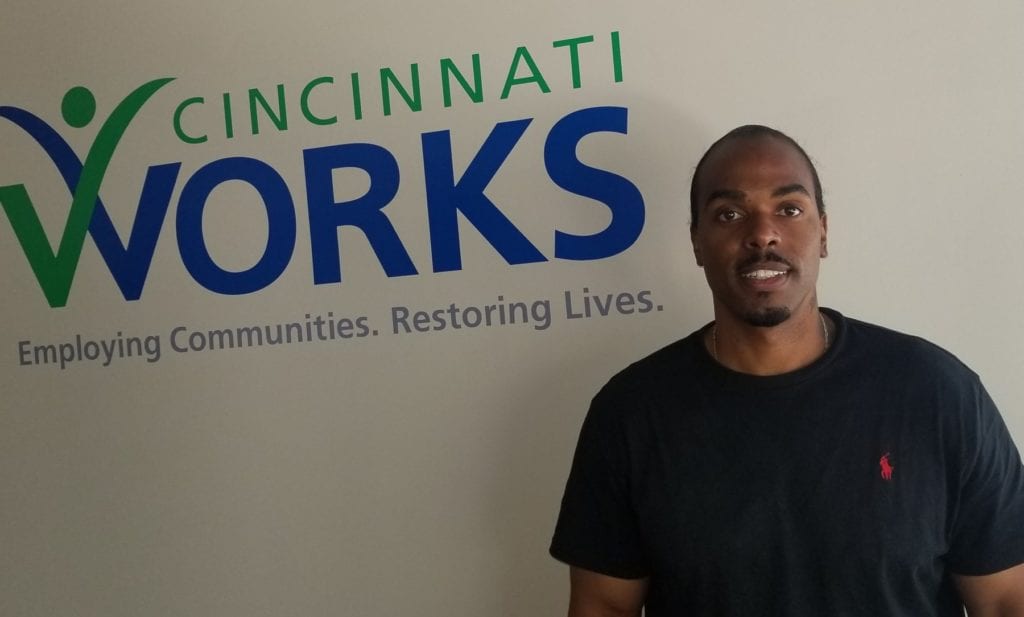The year he spent in solitary confinement left scars across the back of Angelo Robinson’s feet. Every trip to the shower required shackles, which tore through the skin around his ankles.
He was reminded of the pain during a recent walk through downtown. Robinson was invited to the NAACP Freedom Fund Dinner at Duke Energy Center, so he bought dress shoes for the occasion. He parked his car at JACK Casino to take advantage of the free parking, then walked a mile to the dinner in shoes that were not yet broken in.
“So now I have all new scars, but there was no doubt I was going to show up,” he said. “I knew there were people waiting for me, and I wasn’t going to disappoint them.”
 Then he smiled. “The next time I wore those shoes, I had Band-Aids all over. It probably looked ridiculous but I didn’t care. I was going to be comfortable that night.”
Then he smiled. “The next time I wore those shoes, I had Band-Aids all over. It probably looked ridiculous but I didn’t care. I was going to be comfortable that night.”
He laughed at the memory, no matter how recent the pain. Robinson’s life has changed dramatically over the past three months, and he has approached each new twist (and blister) with optimism.
Earlier this summer, in a landmark case that was covered in the New York Times, Robinson had a murder conviction reduced to manslaughter, which allowed him to be free on parole. Over the next two months, he did his best to catch up on 22 years outside society:
- He bought a car, found car insurance, completed driver’s training and passed his driver’s test, all within the first 10 days he was free.
- He opened a bank account, got a cell phone, found a doctor and a dentist, and researched local colleges.
- He completed the JumpStart job-readiness workshop at Cincinnati Works and met with a financial coach about building credit.
- He interviewed for and was offered three jobs. He chose Meyer Tool, a high-tech manufacturer, where he now works as a machine operator.
Robinson chose Meyer in part because they offer tuition reimbursement, and he plans to pursue an associate’s degree in computer engineering.
“I like being busy, feeling like I accomplished something,” he said. “The more I accomplish, the more alive and free I feel. I like the momentum I have going right now. I feel accepted now. I feel a part of something.”
“He is amazing,” said Alyssa Beck, legal advocate at Cincinnati Works and a staff member at Ohio Justice & Policy Center. “The idea of a second chance is becoming a bigger and bigger issue across our society, not just with employers, and Angelo is a good example of why. People are realizing that mistakes happen, and you aren’t hiring the person on a piece of paper from 10 years ago.”
 Still, Robinson had to clear a frustrating – and expensive – series of hurdles before he could accept the job at Meyer Tool or the invitation to the NAACP dinner.
Still, Robinson had to clear a frustrating – and expensive – series of hurdles before he could accept the job at Meyer Tool or the invitation to the NAACP dinner.
For instance, when he applied for a driving learner’s permit, he was told he faced $2,075 in license reinstatement fees based on two unpaid tickets from his teenage years. Cincinnati Works and our partners at Ohio Justice & Policy Center helped him negotiate a payment plan, and Cincinnati Works covered the cost of driver’s training. Then, he needed car insurance before he could take his driver’s test, but he could not get insurance without a license. After more than a dozen phone calls, he was able to purchase insurance and take the test.
As part of the application process at Meyer, he had to show the GED he earned while in prison – not a copy of the GED but the original, which he had given to his mom years ago. She recently moved, and the certificate was among years’ worth of belongings at her previous home. He spent more than six hours over two days looking through each paper he could find.
“The electricity was turned off since nobody was living there, so I was dripping with sweat,” he said. “Finally my mom opens a closet and pulls out a box, and guess what was inside?”
Now Robinson carries the GED and all of his other important papers in a folder. Because of his past conviction, he knows he has to prove himself – his identity, his work ethic, his value to society – to nearly everyone he meets.
“There is a lot on my shoulders, but it’s something I want to do,” he said. “I can open doors for other people coming out of prison. I know I can do it. I want everybody else to see it being done.”


Praying for nephew Angelo Robinson have followed him via internet for years. Aunt Kim from Chicago.